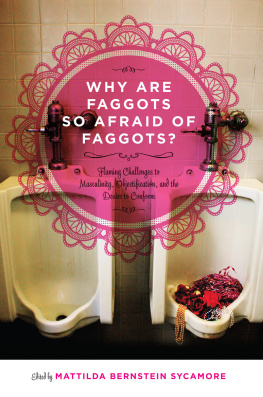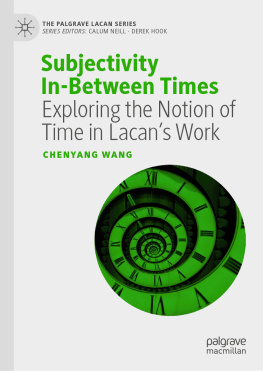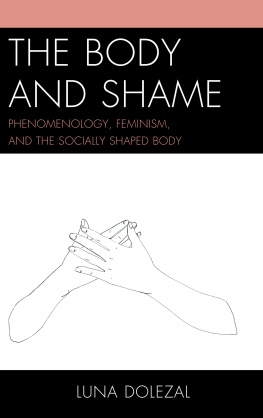Routledge Research in Gender and Society
1. Economics of the Family and Family Policies
Edited by Inga Persson and Christina Jonung
2. Womens Work and Wages
Edited by Inga Persson and Christina Jonung
3. Rethinking Households
An Atomistic Perspective on European Living Arrangements
Michel Verdon
4. Gender, Welfare State and the Market
Thomas P. Boje and Arnlaug Leira
5. Gender, Economy and Culture in the European Union
Simon Duncan and Birgit Pfau Effinger
6. Body, Femininity and Nationalism
Girls in the German Youth Movement 19001934
Marion E. P. de Ras
7. Women and the Labour-Market
Self-employment as a Route to Economic Independence
Vani Borooah and Mark Hart
8. Victorias Daughters
The Schooling of Girls in Britain and Ireland 18501914
Jane McDermid and Paula Coonerty
9. Homosexuality, Law and Resistance
Derek McGhee
10. Sex Differences in Labor Markets
David Neumark
11. Women, Activism and Social Change
Edited by Maja Mikula
12. The Gender of Democracy
Citizenship and Gendered Subjectivity
Maro Pantelidou Maloutas
13. Female Homosexuality in the Middle East
Histories and Representations
Samar Habib
14. Global Empowerment of Women
Responses to Globalization and Politicized Religions
Edited by Carolyn M. Elliott
15. Child Abuse, Gender and Society
Jackie Turton
16. Gendering Global Transformations
Gender, Culture, Race, and Identity
Edited by Chima J. Korieh and Philomina Ihejirika-Okeke
17. Gender, Race and National Identity
Nations of Flesh and Blood
Jackie Hogan
18. Intimate Citizenships
Gender, Sexualities, Politics
El

bieta H. Oleksy
19. A Philosophical Investigation of Rape
The Making and Unmaking of the Feminine Self
Louise du Toit
20. Migrant Men
Critical Studies of Masculinities and the Migration Experience
Edited by Mike Donaldson, Raymond Hibbins, Richard Howson and Bob Pease
21. Theorizing Sexual Violence
Edited by Rene J. Heberle and Victoria Grace
22. Inclusive Masculinity
The Changing Nature of Masculinities
Eric Anderson
23. Understanding Non-Monogamies
Edited by Meg Barker and Darren Langdridge
24. Transgender Identities
Towards a Social Analysis of Gender Diversity
Edited by Sally Hines and Tam Sanger
25. The Cultural Politics of Female Sexuality in South Africa
Henriette Gunkel
26. Migration, Domestic Work and Affect
A Decolonial Approach on Value and the Feminization of Labor
Encarnacin Gutirrez-Rodrguez
27. Overcoming Objectification
A Carnal Ethics
Ann J. Cahill
First published 2011
by Routledge
270 Madison Avenue, New York, NY 10016
Simultaneously published in the UK
by Routledge
2 Park Square, Milton Park, Abingdon, Oxon OX14 4RN
Routledge is an imprint of the Taylor & Francis Group, an informa
business
This edition published in the Taylor & Francis e-Library, 2011.
To purchase your own copy of this or any of Taylor & Francis or Routledges collection of thousands of eBooks please go to www.eBookstore.tandf.co.uk.
2011 Taylor & Francis
The right of Ann J. Cahill to be identified as author of this work has been asserted in accordance with sections 77 and 78 of the Copyright, Designs and Patents Act 1988.
All rights reserved. No part of this book may be reprinted or reproduced or utilized in any form or by any electronic, mechanical, or other means, now known or hereafter invented, including photocopying and recording, or in any information storage or retrieval system, without permission in writing from the publishers.
Trademark Notice: Product or corporate names may be trademarks or registered trademarks, and are used only for identification and explanation without intent to infringe.
Library of Congress Cataloging in Publication Data
Cahill, Ann J.
Overcoming objectification : a carnal ethics / Ann J. Cahill.
p. cm. (Routledge research in gender and society ; 27)
Includes bibliographical references and index.
1. Sex role. 2. WomenIdentity. 3. WomenSexual behavior.
4. Sex (Psychology) I. Title.
HQ1075.C34 2011
306.7082dc22
2010023373
ISBN 0-203-83584-0 Master e-book ISBN
ISBN13: 9780415882880 (hbk)
ISBN13: 9780203835845 (ebk)
Preface
In some philosophical circles, particularly those engaged with questions of sex, gender, and identity, a somewhat remarkable shift has occurred. The modern model of the autonomous, rational, disembodied self has been rejected; in its place stands a self marked by its own materiality, a self always and already embedded in a web of contexts and relationships. The body, as the site of difference and intersection, has been recognized as central to the processes of becoming that mark human subjects, rather than as a peripheral and sometimes obstructionist force that the disembodied soul or will must control. Flesh no longer stands in for passivity, or a regrettable association with the non-human world, but constitutes an openness to the other, a medium of transformation, and yes, a vulnerability without which subjects cannot come into being.
Given the radically challenging nature of this shift, it is not surprising to note that philosophical treatments of embodiment and intersubjectivity have continued to proliferate in recent decades. It is equally unsurprising to discover that there remain areas of inquiry not yet sufficiently transformed by the model of the incarnate, situated, sexually/ racially/geographically (etc.) marked subject. My philosophical interests center on these areas, particularly those that concern gender equality. Most broadly, my work seeks to answer the following questions: What happens to philosophical theories when subjectivity is oriented around the body? What flaws in previous theories show up? What new theoretical possibilities emerge? Most fascinating to me are bedrock concepts or approaches in feminist theory, those that have become central to feminist philosophizing but that have not necessarily been considered in relationship to relatively new theories regarding the body, the other, and the self. My role so far in feminist theory, then, has been that of a re-visitor: I explore that which has become familiar or assumed, seeking to reshape that territory by deploying relatively new conceptual tools. Such reshaping, I hope, results in insights that further clarify the ways in which sex/ gender inequality shapes contemporary culture and the lives of those who inhabit it.







 bieta H. Oleksy
bieta H. Oleksy